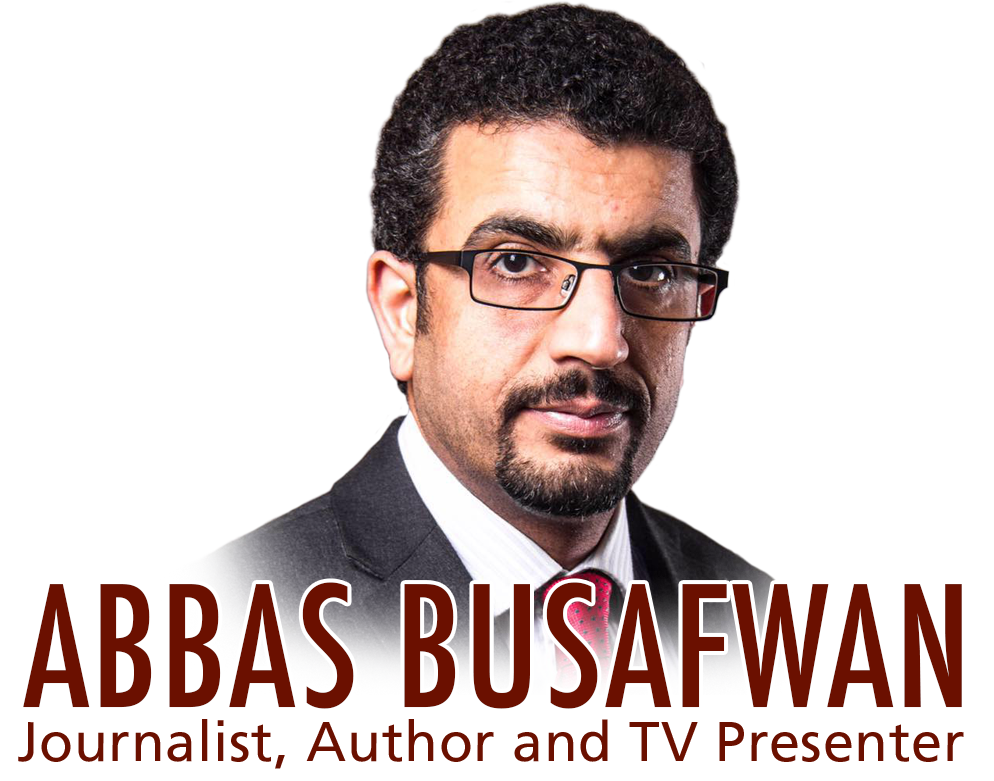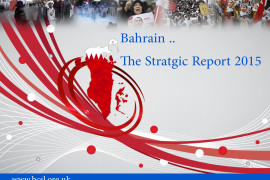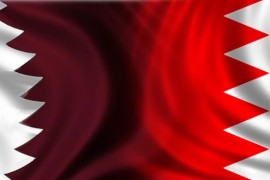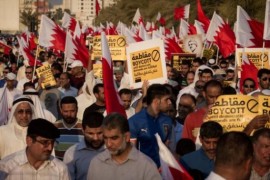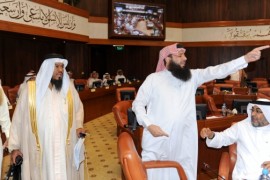- UAE: Global Engagement in the Wrong Direction
- 1.Financial Power
- 2.Investments and Weapons
- 3.Dubai’s Financial Collapse
- 4.A Lesson from Qatar
- 5.The UAE Model
Introduction
UAE’s participation (with Egypt) in bombing Libya’s capital, Tripoli, secretly, last August, according to American sources was quite surprising.
UAE’s military intervention in another country’s affairs without green light from the UN, in which America claimed to be surprising, reflects the Gulf’s interference in the Arab region’s affairs, is hard to explain.
Other Gulf nationals and to be specific Omanis think that UAE’s increased involvement in regional affairs is an increased risk on itself as well as the region and is considered a deviation from the peaceful political stand Zayid Bin Sultan Al Nahyan (1918 – 2004) had adopted. He was the president and founder of the federal state composed of seven emirates: Abu Dhabi, Dubai, Al Sharja, Ras Al Khaimah, Ajman, Um Al Qaiwain and Fujairah.
UAE does not seem to be the only Gulf country getting involved in the region’s exploding issues, other small countries that were peaceful and self-contained are suddenly leading the scene with a purpose of installing ancient ideologies in primitive and brutal ways and not only through their petrodollars and “soft” control.
In this era, in which some call ‘Gulf Era’, some oil rich countries have chosen policies that are far away from peaceful in many cases within their countries and in their regional stand to deal with the ‘Arab Spring’ and before that the post-Saddam era. The ‘Gulf Era’ has been associated with unforeseen destruction in Arab countries, in which the observer sees a perceives a direct relationship between the Gulf dominance and regional destruction.
Joe Biden, the Vice President of The United States, made a point to mention the participation of UAE, Saudi and Turkey (he did not mention Qatar!), in financing the armed forces fighting a vicious war against the central governments in Baghdad and Damascus, not to leave any doubt about the involvement of the UAE in the reckless policies.
A few years back, especially during the reign of the late Zayid Bin Sultan, UAE was considered the quiet state, busy with its internal affairs and the welfare of its people, and a generous provider of financial support to others. It initiated relations with many countries around the world, even its neighbor Iran, which Abu Dhabi claims occupies some of its islands.
After ten years of Zayid’s death (announced in 2004), the Gulf State seems changed. Instead of gaining insight and maturity after more than four decades of gaining independence (1971), in a region lacking wisdom, it seems that Saudi’s aggressive epidemic has affected the UAE, at a time where some wished it would choose the Omani model in building regional and international relations, with positive involvement in international affairs, and adopting negotiations to settle border differences and avoiding feeding sectarian issues in the area.
Currently, the actual ruler of the UAE is its crown prince Mohamed Bin Zayed Al Nahyan, which is similar to Dubai’s situation with Mohamed Bin Rashid Al Maktoum, its president and UAE’s prime minister who has been running the emirate during his brother’s rule (1943 – 2006).
Mohamed Bin Zayid, the stepbrother of the president, Khalifa Bin Zayed, invested in a couple of issues as an attempt from him to play a regional role. I would illustrate some:
1.Financial Power
Abu Dhabi uses its huge investments to affect regional politics. Abu Dhabi’s Investment Authority is the second largest sovereign fund with assets valued around $773 billion, (the largest is Norway’s sovereign fund valued at $893 billion).
The UAE produces around 3 million barrels per day, and aims at increasing production to 3.5 barrels per day, according a statement by their Minister of Energy, Suhail Al Mazroui, during last April.
Most of the country’s petrol comes from Abu Dhabi, which makes up 86% of the country’s land and 94% of the its oil reserves, which gives its the upper hand amongst the seven emirates. It also holds 90% of the gas reserves, which the country imports from Qatar and Iran.
In 2012, the oil revenues reached an unprecedented AED 458 billion. This year oil revenues are not expected to rise with wide predictions of a decline in oil prices.
2.Investments and Weapons
According to the Stockholm International Peace Research Institute, UAE is the biggest buyer of weapons amongst Arab countries and the fourth largest importer of weapons in the world, in which it spent more than $19 billion on military equipment in 2012.
In a country with a population less than one million and a humble army, this approach is considered a misuse of public funds and sheer bribery to the US and other weapon exporters.
The Gulf’s investments in the United Kingdom is an estimated GBP 120 billion in 2013, half of which is from Saudi Arabia, UAE’s actual partner in the aggressive counter revolution taking part in Egypt, Libya, Bahrain, Yemen and other countries.
The effects of this counter revolution is spreading to the West, where Gulf funds are playing a big role in minimizing the limited voices that urge the UK to play a clearer role in rationalizing their gulf allies, and advising them to take positive steps towards their people, to avoid the worst. This applies to the UAE which is arresting tens of Emirati activists that belong to the Muslim Brotherhood, due to their political opinions.
There is a lack of transparency and information regarding the country’s foreign investments, but some journalistic sources estimate it to be more than GBP 5 billion in London, as Abu Dhabi’s Investment Authority owns a percentage in Gatwick airport and Abu Dhabi’s National Energy Company in the North Sea, and Dubai’s International Company runs London’s port with investments estimated at 1.5 billion pounds as well as investments in ExCel London.
Britain has exempted UAE nationals from the entry visa earlier this year. Gulf tourists, more than 530 000, injected an estimated £1.2 billion as returns into the British Treasury according to 2012 figures. This is an important point taken into consideration by the British authorities, just as it takes into account the tens of thousands of Britons who work in Dubai and Abu Dhabi receiving preferential treatment, as well as the British companies that find promising opportunities in the Gulf both in government projects in the private sector. This has paramount importance in British business community closely related to the ruling elite in London.
This is not supposed to be understood that the West is moving towards the democratization of the region, as much as I would like to point out that UAE and Gulf countries’ money enhances the grip both internally within these systems and externally through international alliances. (Egypt does not have huge financial surpluses, but the Gulf’s money supports Egypt’s army while geopolitics serve its current rule at present).
3.Dubai’s Financial Collapse
In November 2009, Dubai surprised the world with the announcement of their inability to repay an estimated debt of $26 billion owed by Dubai World. Dubai’s government will be thus be forced to declare bankruptcy if the government company’s creditors did not accept a restructuring of the debt.
The largest Emirate, Abu Dhabi, intervened to give Dubai an urgent aid that amounted to $10 billion, to help the Emirate, which was still a destination for global investment, to overcome suffocating financial difficulties. The aid from Abu Dhabi came as a surprise after several weeks of the Dubai announcement that had badly hurt its reputation.
This financial support was not free of charge. Perhaps it was towards granting greater power and influence to the main federal government in Abu Dhabi to control the political decision in the Federal State, in which the powers of local governments interfere with federal authority in Abu Dhabi. It is likely that Abu Dhabi has succeeded in bargaining Dubai to acquire a greater share in authority whether it was in foreign policy, security policy, or economic policy.
In March 2014, Abu Dhabi has agreed to refinance the loans and bonds with a cost of $20 billion, which was obtained by Dubai to counter the financial crisis in 2009.
In a region striving on the surpluses of oil, Dubai remains successful in diversifying its economy. But it still needs huge funds owned by Abu Dhabi, not just to continue its recovery, but in order for its economy not to collapse.
Dubai’s debt is estimated at about $235 billion, and it would be obliged to repay $60 billion of its debt until 2017, according to the reputable “The Economist” magazine.
Dubai was viewed as a competitor to Abu Dhabi in the framework of the federal state, but that is no longer the case since 2009.
4.A Lesson from Qatar
Dubai’s model for attracting tourists and business sectors has encouraged the ruling Al Nahyan family in transforming Abu Dhabi into another Dubai, mainly supported by the huge oil surpluses. Similarly, Qatar has encouraged UAE to play a similar role in what appeared to be a success in creating an effect in the regional arena.
Abu Dhabi invested in some media organizations, including Sky News Arabia, in an unsuccessful attempt to compete with Al-Jazeera. UAE’s lust then took a blatant divergence in the case of Egypt and Bahrain, where Abu Dhabi sustained military institutions in the two countries that have faced massive revolutions in 2011.
The concession the former Amir of Qatar Hamad bin Khalifa to his son Tamim did not lead the UAE, amidst very serious regional changes, to review its policies that orient it to be a violent player alongside Saudi Arabia, which believes in the proverb: “Own it or burn it” in dealing with other Arab countries (Iraq, Syria, Yemen, Bahrain, Libya ..).
5.The UAE Model
UAE does not a have an elected parliament, national civil organizations, or free press, that can rationalize the official stand. When you ask the UAE people about the reason for the aggressive path, you will not find clear explanations about the end goals of this direction that pours gas on fire, and threatens the region’s future.
UAE is now part of the destructive alliance penetrating the Arab body, which is already heavily wounded. People have all the right to miss the peaceful days of Zayid.
Perhaps UAE should reconsider the image it is aiming for and the model it is intending, and I do not wish it chooses a bloody engagement in a frail region. It can however engage positively with the rest of the world, possibly the Scandinavian model is worth following: internal welfare and peace with the rest of the world
